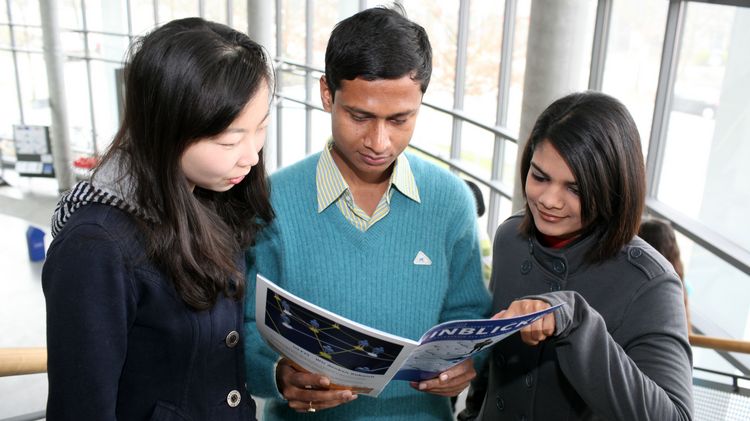Open Science
External resources
Open Science Guidelines EU Open Science Policy UNESCO Open Science Recommendations
Materials The German Reproducibility Network (GRN) curates Open Science teaching and learning materials GRN Resource Library
The University of Konstanz offers an Open Science basic course
Open Science
Open Science promotes open and transparent access to scientific information and results. Open Science encompasses various aspects, including
- The open exchange of research data (Open Data),
- the open description of methods and, where appropriate, the provision of source code or analysis scripts (Open Source),
- open access to research results (Open Access),
- as well as open teaching and learning materials (Open Educational Resources).
The goal of Open Science is to improve the quality and effectiveness of scientific research by facilitating and expanding access to information and resources. The University of Oldenburg recognises the relevance of Open Science for sustainable research. In its Digitalisation strategy, it calls on scientists to make their research accessible, comprehensibleand re-usable. The University supports its researchers in this endeavour with appropriate services.
Open Access
The Presidential Board of the University of Oldenburg is strongly in favour of Open Access publishing and has adopted an Open Access Policy and signed the "Berlin Declaration on Open Access to Knowledge in the Sciences and Humanities". Open Access publications can be funded by the Open Access Publication Fund. The University of Oldenburg also participates in the Open Access Monitoring.
Open Data
Inline with its strategy for handling of research data, the University of Oldenburg promotes open access to research data in accordance with the FAIR principles(findable, accessible, interoperable, reusable). Researchers can seek advice on the publication of data at various points and use the university's own research data repository DARE.
Open Source
The use of open source runs through the entire provision chain of IT services: Starting with the services offered externally (e.g. Stud.IP), through their technical foundations (e.g. Apache, PHP, MariaDB) to the equipment of the workstations for the administrators (e.g. RHEL or Debian Linux). Among others. the following services are offered at the UOL:
Stud.IP learning management system
NextCloud cloud storage
collaborative office application OnlyOffice
web conferencing tool Big Blue Button
survey tool LimeSurvey
version management GitLab
operation of UOL websites with TYPO3 operation of (student) project websites with Wordpress
Researchers as well as teachers and students share open code, for example via GitHub. Links to other repositories can be found in the researchers' publications or on the websites of the respective working groups.
Open Educational Resources
Open Educational Resources (OER) are educational materials of any kind and in any medium that are freely accessible and may be used, redistributed and usually also edited free of charge . The core feature is open licensing, which allows third parties to use the materials. The choice of licence and thus the decision as to which use of a work is permissible lies solely with the authors (cf. German Commission for UNESCO).
Further information about OER can be found on the university's OER pages
Finding and publishing OER for and in higher education : OER portal "twillo”
The Center for Open Education Research (COER) at UOL is an international research consortium that promotes international research collaboration, innovation and understanding in the fields of open education, educational technology, lifelong learning and international education: COER
Domain-specific initiatives and policies
For domain-specific questions on Open Science, the following initiatives are available:
Tools for Open and Reproducible Neuroimaging
The DFG Device Center Tools for Open and Reproducible Neuroscience develops tools and software solutions that support scientists in conducting transparent and reproducible neuroscientific research.
Open Science Interest Group of the Department of Psychology
The Open Science Interest Group (OSIG) of the Department of Psychology sees itself as a learning community of interested scientists and students who support and promote working according to Open Science principles.
Digitized Energy Systems
As the Department of Digitalised Energy Systems, we are committed to transparent and open science that makes findings from energy research freely available.
Policy Open Science Declaration of the Zukunftslabor Energiemore
Are you missing an initiative of the University of Oldenburg in this list? Please contact us!






